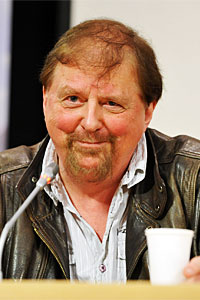'I said to Putin: 'We could waste [Prigozhin], no problem. If not on the first try, then on the second.' I told him: 'Don't do this'," said Aleksander Lukashenko, long-ruling dictator of Belarus, clearly delighted at having upstaged his arrogant Russian counterpart. The worm had turned, and it was the Russian dictator who needed help.
It's barely a week since a column of several hundred military vehicles of Mr Prigozhin's 'Wagner' private army, many of them armoured, was rolling towards Moscow, while various oligarchs took the sensible precaution of flying out to safer places.
But would-be coup leader Yevgeny Prigozhin accepted Mr Lukashenko's offer of sanctuary and is now setting up on an abandoned military base in Belarus. "There is a fence, everything is available, erect your tents," Mr Lukashenko told any of the now homeless Wagner mercenaries who want to follow their leader into a not-very-distant exile.
So it's all over, and it's back to business as usual for Russia's President Vladimir Putin -- except for one enormous change that is best expressed as two questions.
The first question is: how did Mr Prigozhin's huge and heavily armed convoy drive 800 kilometres. up the M4 freeway (four-fifths of the way to Moscow) without encountering any opposition except for a few Russian air force aircraft that were quickly shot down? The other question is: Once Mr Prigozhin ordered his army to turn back, having realised that he lacked sufficient support in the regular army and the security forces to become the new king-maker, why wasn't he arrested and shot, or at least thrown into Russia's deepest, darkest dungeon?
The answer to both questions is the same. These highly improbable events occurred because Mr Putin is far weaker, his power much less secure than anybody suspected. "Anybody" includes Mr Putin himself, in all likelihood. When he pulled the levers of power, it turned out that they weren't connected to anything.
Imagine, for a moment, that a very large convoy of heavily armed rebel militia left Chicago one day during the Vietnam War, heading for Washington with the announced goal of getting rid of the Defense Secretary and the Chief of the General Staff. Why? Because they weren't good enough at killing Vietnamese, and the war was being lost.
Would that column have made it all the way to Maryland before it was stopped -- and stopped even then, thanks only to the intervention of the Canadian prime minister, who talked the rebels' commander out of seizing Washington and gave him asylum in Canada?
All analogies are imperfect, but this one is serviceable enough. It tells us that the current Russian state is a ramshackle structure that has little in common with modern great powers like the United States or China, or even with historic Russian states like the Soviet Union or imperial Russia between the reigns of Peter the Great and Catherine the Great.
Today's Russia is an aggregation of private fiefdoms with few loyalties beyond the personal. The army, despite its extreme corruption, is the only large Russian organisation that sometimes (but not always) acts in the perceived national interest. And the army conspicuously did not intervene to protect Mr Putin from Mr Prigozhin's anger.
What saved Mr Putin was Mr Prigozhin's recognition, late last Saturday afternoon as his armoured column neared Moscow, that the army, while not defending Mr Putin, was not rallying to the Wagner leader either.
This is the chronic problem with coup plans: The requirement for secrecy means that the plotters cannot accurately measure the potential support for their plans before they act. Mr Prigozhin's troops could probably have taken Moscow, but they couldn't hold the whole country, and the result could well have been a civil war.
Mr Prigozhin is a thug, but he is also a patriot. Not wishing to be remembered as the man who unleashed a civil war, he started looking for a way -- and grabbed at the deal that Mr Lukashenko offered him. Does this sound like the plot summary for episode six in a not-very-good Netflix series? Yes, of course. What did you expect? Macbeth? Or maybe Lady Macbeth of Mtsensk? (Look it up.)
Conclusions: Mr Putin is so badly weakened that he may be gone as soon as those around him can agree on a replacement. However, they would be wise to wait and see if the Ukrainians make big advances, as defeat in Ukraine could then be blamed on Mr Putin.
Any replacement will also feel compelled to pursue the war in Ukraine. The outcome will still be dictated by the course of battle. Nobody in their right mind wants Yevgeny Prigozhin near nuclear weapons. Not in Moscow, and not in Washington: Western intelligence services had nothing to do with Mr Prigozhin's actions. Russia will not "break up" no matter what happens. Don't be silly.
